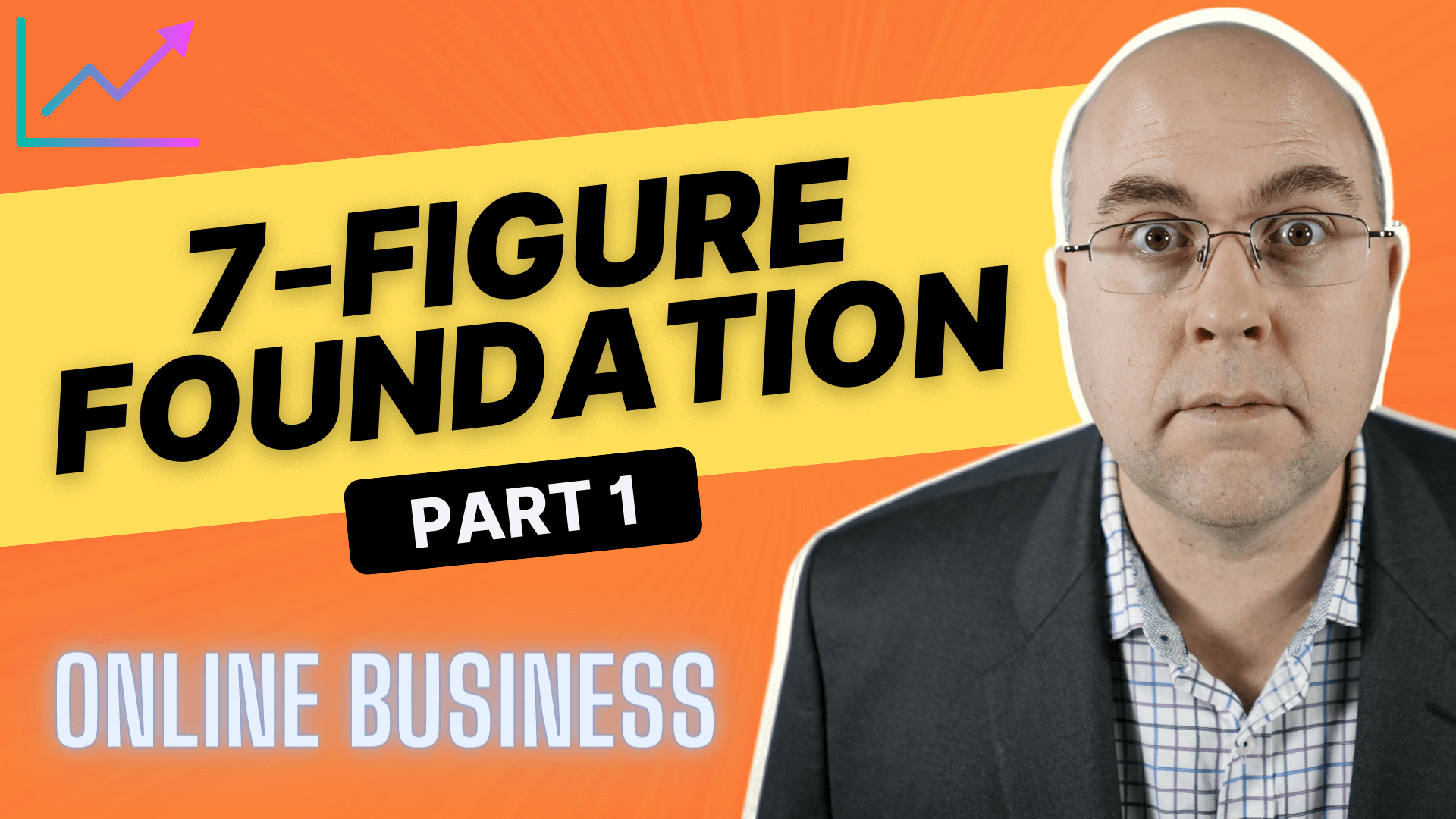Ultimate 7-figure Online Business Foundation (Part 1)
There are nine foundational elements an online business needs to hit seven figures. Let’s find out if you have them and if not, how to put them in place rapidly.
In a previous episode, I talked about three functions you need running at the same time for success. They are attracting an audience, converting them to customers, and serving them well to ascend them into higher level programs.
I didn’t have time to cover how to put those in place. So that’s what I’m gonna do in Parts one and two of this video with our Expert Business Foundation. Be sure to stay until the end where I’ll cover a bonus tip on how to get all nine up and running in your business quickly.
The problem with online business influencers

You’ve probably noticed that all of the online gurus courses and usually only teach you a small part of the puzzle of building a seven figure online business. Why is that? Because it’s complicated. There are a lot of moving parts required and it’s hard to sell complexity.
So what they do is they pick one tiny slice like blogging or podcasting or Facebook ads or webinars, and make it sound like their slice is the most important by far, and that you should buy their program and implement that first.
That results in many of us chasing shiny objects, the next course, program, or method that makes everything look easy. Then we wake up months or years later with dozens of programs, thousands of dollars spent, and no real progress. When I started the Expert Business Agency, we decided to do the opposite, even though it’s harder.
What I learned from SUCCESSFUL online entrepreneurs…
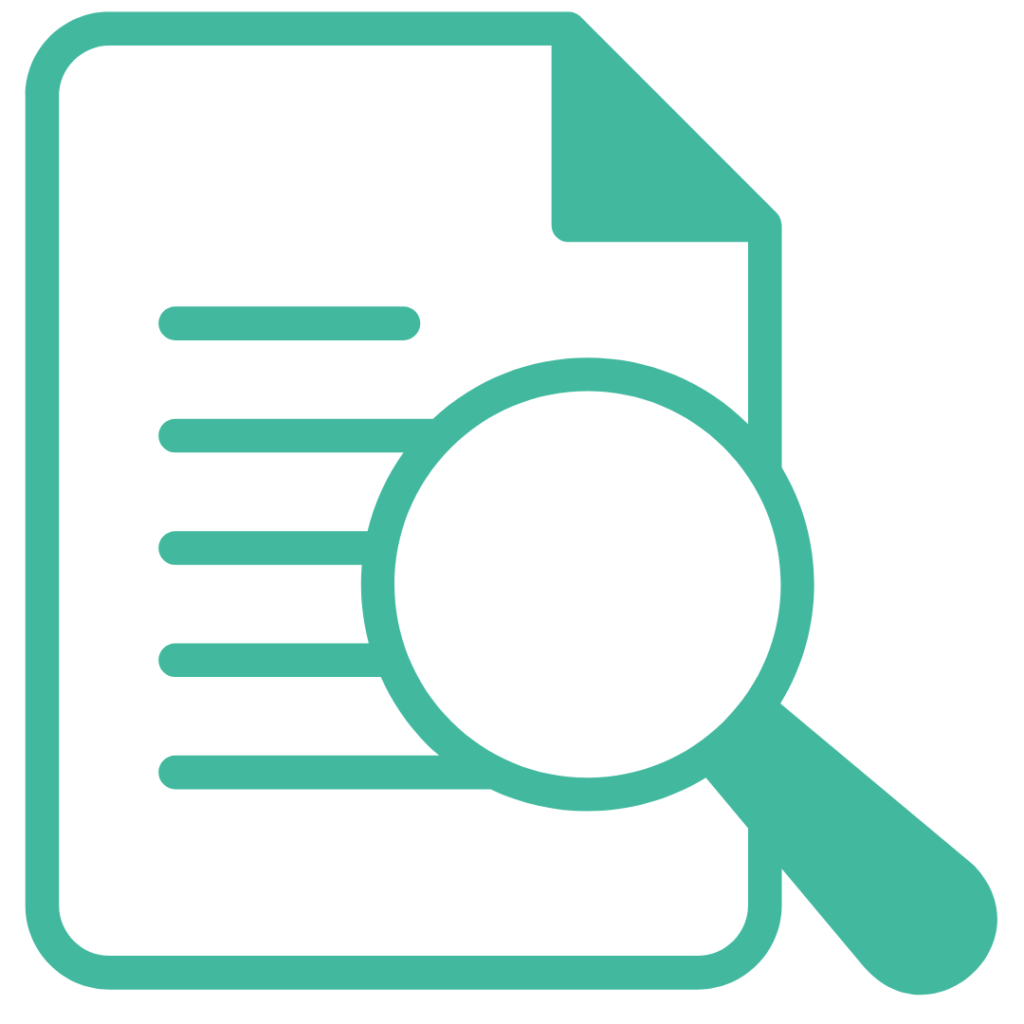
The opposite is to be honest and deal with reality and complexity head on. I researched and interviewed for a virtual summit, 20 different successful online entrepreneurs to dig into their businesses, their teams, and their process. I spent tens of thousands of dollars on courses and masterminds to learn how they were successful.
The results were a bit shocking. None were sitting on a beach with a laptop and only working four hours a week. Sorry, Tim Ferris, they all had teams, tools, and systems in place. It took a lot more research to see what they were really doing.
After a long period of immersion in interviews, many different programs and masterminds, a clear pattern emerged.
9 foundational elements of a 7-figure online business
The first I covered in my video about the three essential functions of a seven figure business, which were attracting an audience, converting them to customers and serving them well, and ascending them into higher level programs.
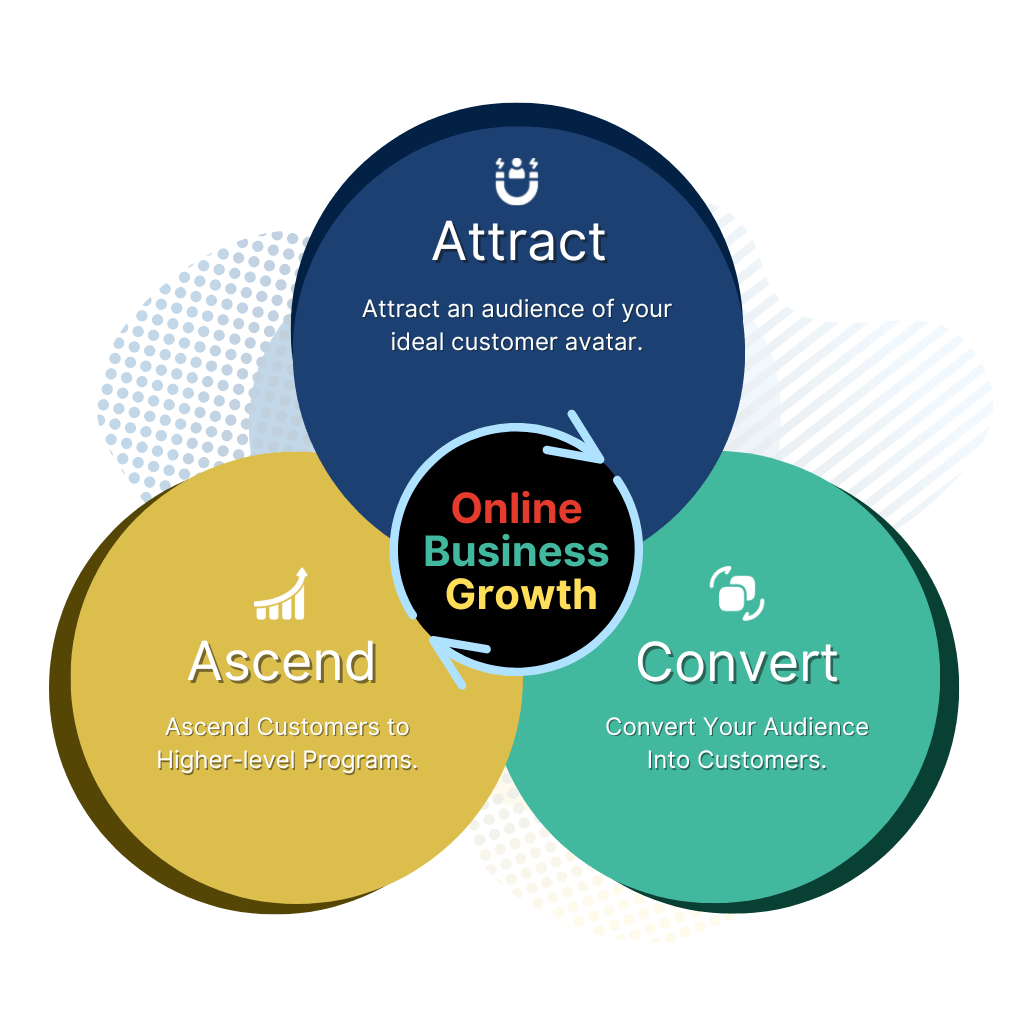
Digging deeper, I started to see nine foundational elements that resulted in audience, customers, and growth. And I’m going to detail the first three next.
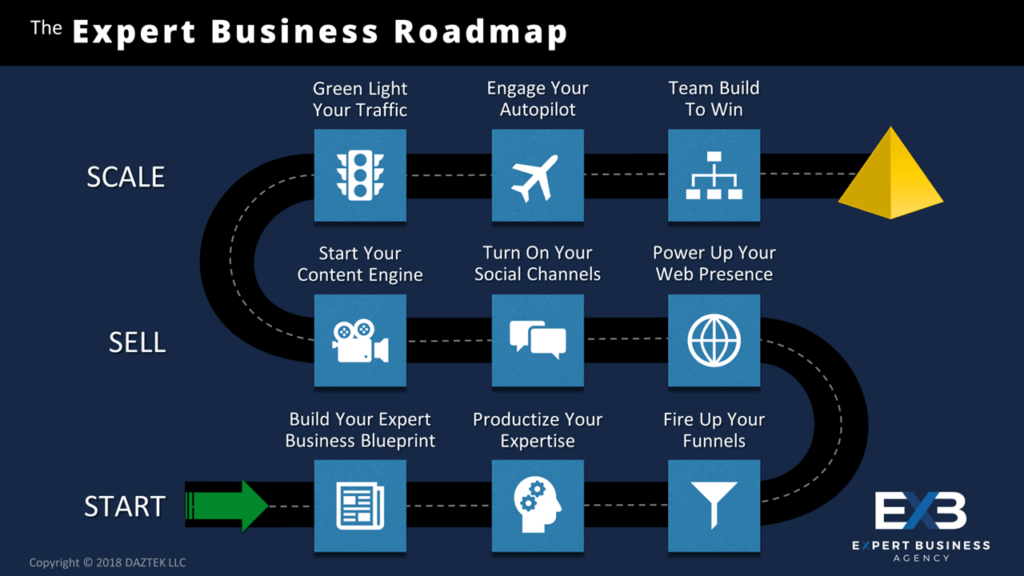
Trying to build a business without a solid foundation is the same as trying to build a skyscraper without one. It’s going to tip over and fail at its weakest point.
Expert Business Blueprint
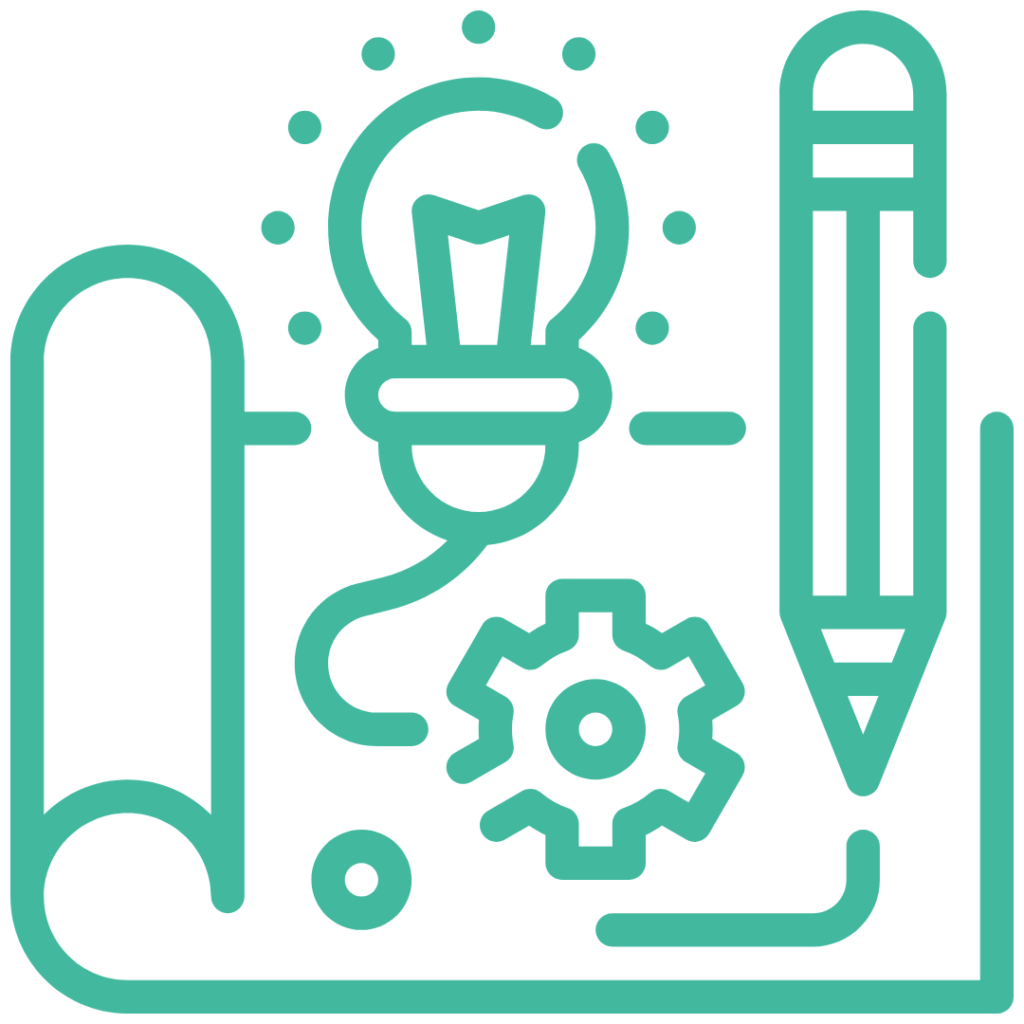
The first foundational element is what we call the Expert Business Blueprint. You can’t build anything of significance quickly without a plan or a blueprint. Maybe that’s my engineering school years in college coming out, but it’s still true. So before we do anything else, we need a high level plan or blueprint for building an online business and getting to seven figures or more.
We call it the Expert Business Blueprint. The first step of your blueprint is where you capture your mission. Both your personal mission, like financial freedom, more time with family and so on, as well as your business’s mission, such as helping people build a business, save a marriage, or improve their health.
Your missions are your North Star. Everything thereafter is measured against, whether it’s on mission or not.
Next is your market, your target audience.
Many people talk and coach about creating an ideal customer avatar. This is similar, but we start out a little bit more broad. The main idea is identifying who you want to serve.
Is it new parents, real estate agents, business owners?
Your mission is why you want to serve, and your market is who you want to serve.
David Ziembicki
Next is your outcomes.
What is the outcome or transformation that you’ll deliver, coach or guide your customers to. Starting with your business’s mission, this is where you get more specific.
As an example, my outcome statement is: “We help struggling solopreneurs become successful virtual CEOs by providing them the team tools and systems they need to reach seven figures in revenue.”
You can see in that statement a major transformation from struggling to success. And the mechanism for getting there, our team tools and systems.
The final element of your business blueprint is your model. We have a mission, we have a market. We have an outcome we want to drive. Now we need a business model that delivers that while achieving our personal and business missions.
This is where you plan at a very high level what type of business you’ll build.
Is it an online course business, an affiliate marketing business, coaching, or SaaS?
At the end of this process, you have your mission, market, outcomes, and business model defined the blueprint for your seven figure expert business.
When we coach clients through this process, it can take one to two weeks as there is a number of exercises, like having them do an inventory of their skills and expertise, determining where they would be ranked in their industry or niche on those skills.
Ranking which of them they’d enjoy, which of them have high earning potential, et cetera. Same for business models. We go through all the pros and cons of each and which would be the best fit for them.
We’ve seen too many people start building online businesses that really aren’t compatible with their mission, their lifestyle goals, or their financial goals.
This blueprinting process is the same as when designing a house.
You want to carefully review the blueprint to make sure what you’re about to build is gonna be what you want.
Productizing Your Expertise
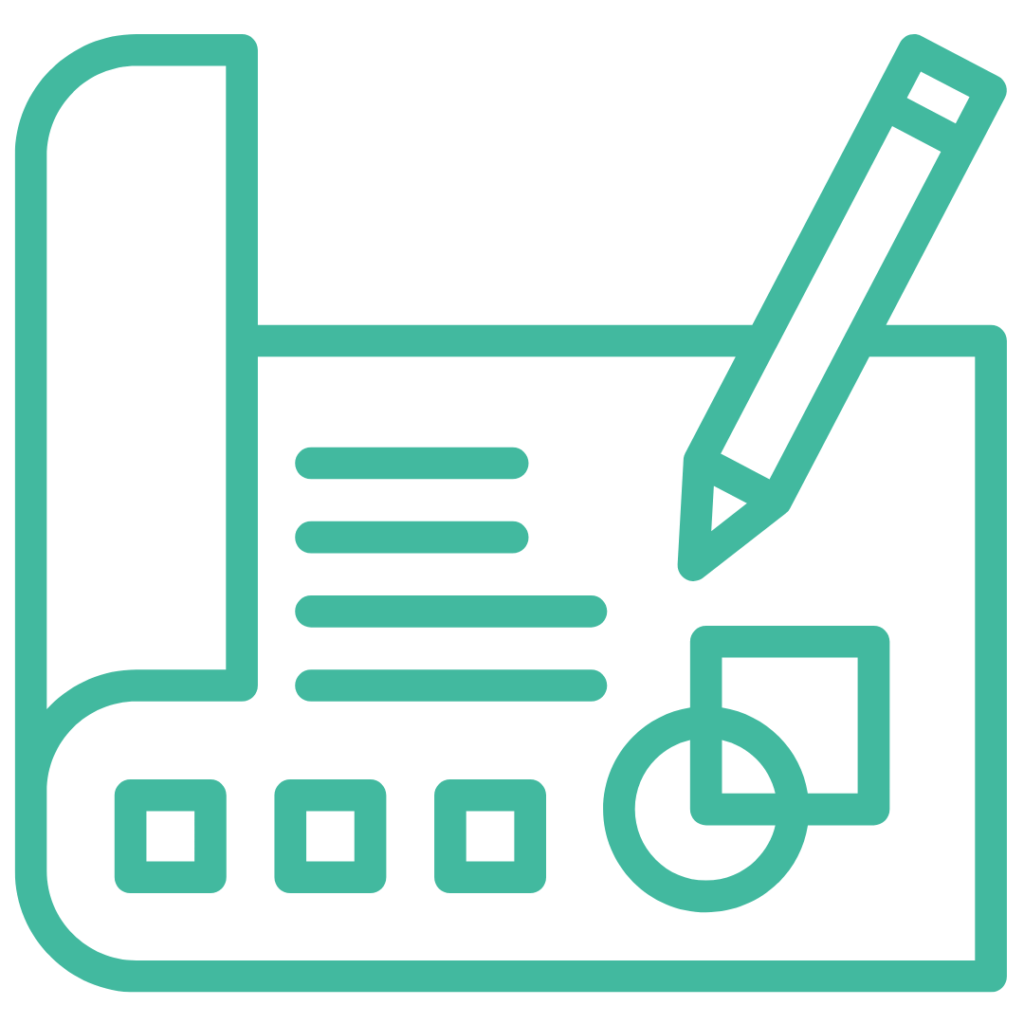
The second foundational element is what we call productizing your expertise. With your expert business blueprint in place, the next step is more detail planning of what your business is going to sell. We call this productizing your expertise.
While I’ve had a very successful career in the consulting business, having sold or delivered over $200 million of services, for solopreneurs, one-on-one consulting or freelancing is not the path to seven figures.
Even as part of a world class consulting division at Microsoft as one of their top architects, my hourly rate topped out at about $500 an hour.
Now, yes, if you do very optimistic math and assume you’re a hundred percent billable all the time and bill 2,000 hours a year, and you can just get to that 1 million in revenue.
But to be that billable, you’d also have to be doing hundreds of hours of pitching and selling, so you’d be working your tail off.
There are almost no solo consultants making anywhere near this revenue. What we did, even at Microsoft, was to productize our services.
What that meant was taking something we did on a one-off basis that delivered a result and turning it into a repeatable solution that could be delivered faster, cheaper, and more consistently, or ideally fully automated.
We went from selling hours for dollars to selling solutions and outcomes.
David Ziembicki
This is one of the most critical concepts for solopreneurs to understand.
Breaking the dollars for hours boundary. This means products like online courses, memberships, group coaching, and masterminds, which are all one to many models.
Now, there’s a lot of debate in the industry around low ticket offers versus flagship offers versus high ticket. Then another between launch models versus evergreen, and yet more on which of these to start with and whether to focus on one or to create a suite of products. But what we’ve seen work best is starting with a high ticket offer, then expanding to a full product suite over six to 12 months.
Why? Starting with high ticket gives you the best chance of generating meaningful cash flow quickly. That cash flow is then used to scale your business as you’re now able to afford help and paid advertising.
When I started the Expert Business Agency, we got our first $15,000 client when our email list was only 46 people.
David Ziembicki
We rolled all of that back into advertising and that accelerated our growth.
The other benefit of starting with high ticket is that you wind up with a much higher quality audience and email list.
Low ticket offers attract low quality leads.
High ticket offers attract high quality leads. Now, after starting with high ticket, you then move down the value ladder by developing a flagship program next for scale, and then eventually a lower ticket offer for very broad reach.
Fire Up Your Funnels
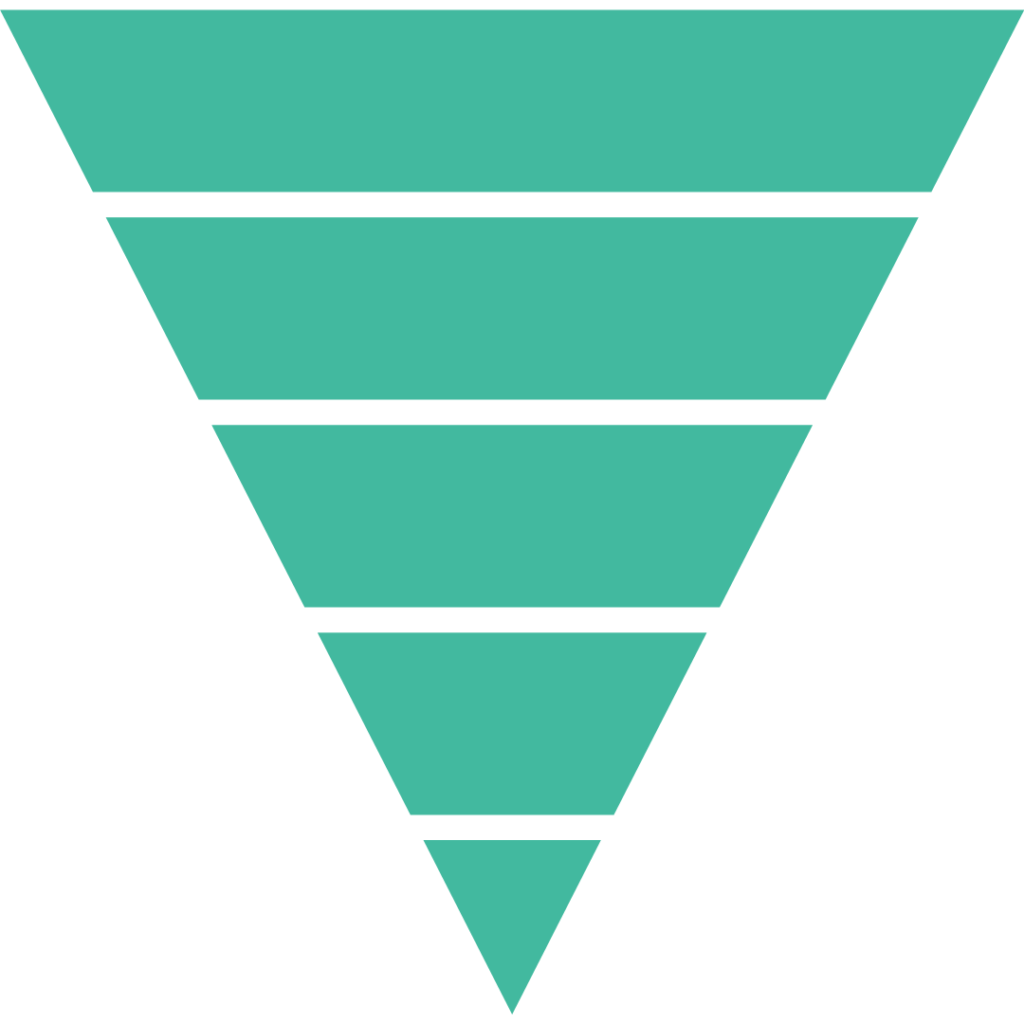
Our next foundational element is called Fire Up Your Funnels. The only way to truly test and validate your product suite is to actually try to sell your products to your target audience. But I can hear you saying, How can I sell them if I haven’t built them yet? Great question. The answer is by pre-selling.
That is selling your program before it’s built. The ethical way to do that is with full disclosure to your audience and giving them reasons to buy something that doesn’t exist yet, like a discount or extra bonuses or additional group coaching calls with you.
Some people call this a beta launch or a founding member launch.
The only way you’ll really know if your programs will sell is to actually try selling them and see if people pull out their credit cards and buy. You absolutely want to know that before you spend weeks or months creating, recording and building your programs.
So how do we pre-sell?
By building the actual sales funnels for your program, and driving some initial traffic to them.
There is an entire art and science of sales funnels, but I’ll net it down to the three core funnels you need.
- First is a lead generation funnel, like a lead magnet or webinar registration funnel.
- Second is a conversion funnel, like a webinar or video sales letter where you sell your flagship course or program.
- And third is a high ticket funnel where you sell your high ticket program or recurring revenue membership.
Now, as we recommended with your product suite, with your funnels, we also want to start with your high ticket funnel and then work down.
High ticket funnels inherently have lead capture in them, so you’ll build your email list as a byproduct of selling your high ticket program.
Your sales funnels are one of the most critical elements of your business, so it’s worth investing time and money to get them right. This takes multiple iterations in testing and the faster you can build, test and improve the better.
When we work with our agency clients, this is where we spend a lot of time as funnels require branding and design and copy editing tech and more.
The bottom line is that as soon as you’ve defined your blueprint and define, but have not yet built your products around your expertise, you want to begin pre-selling to generate revenue and feedback on your offer funnel and products.
Now, if this sounds like a lot of work, it is.
This is why our clients come to us.
Doing even just these first steps well is nearly impossible. We’ve touched on a bunch of different skills and experience required. We help by providing expert coaching and providing access to our team to do most of the work.
Now to this point, we’ve covered three of the nine essential elements of your expert business foundation.
In Part 2, I’ll detail the next three starting with Power Up Your Web Presence: How to rapidly set up a money making website as your base of operations.

